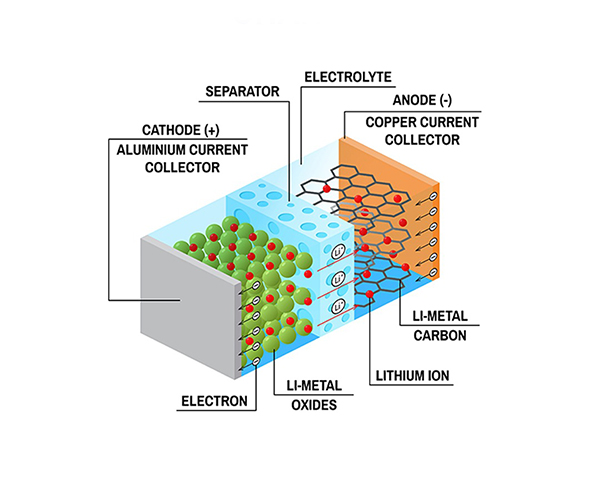Do you know what powers your laptop or the phone in your hands? And the answer is lithium-ion batteries! Apart from powering such portable electronics, lithium-ion batteries are used in electric vehicles as well.
Lithium ion batteries are revolutionizing the battery industry. These days we have seen a surge in the production of these batteries. Many lithium-ion battery manufacturers produce lithium-ion batteries for electric vehicles, sail boats, golf carts, forklifts, solar applications and much more. Many people are switching to lithium-ion batteries due to its various advantages and benefits.
But what makes them so special? To know more about them read on.
1. Lithium-ion batteries are rechargeable batteries
Lithium ion batteries are a kind of rechargeable batteries that pack in more power than their average lead-acid battery counterparts.
2. Components of Lithium ion batteries:
Basically a lithium ion battery is made of four parts -cathode, anode, separator and electrolyte.

Cathode:
Electricity Is generated by the lithium-ion battery due to the chemical reactions occurring between lithium and the other components present in it.
Pure lithium is not used as the cathode as it is highly reactive. Lithium oxide is used as the cathode in lithium ion batteries.
Anode:
The active material is pasted on the anode substrate. Here graphite is used as an anode because of its low reactivity, hence the lithium ions are stored here. During the charge cycle the lithium ions are stored in the anode. While in the discharge state, the ions move back to the cathode. The electrons that get separated from the lithium ions during this process flow through the wire as electricity.
Electrolyte:
Here the electrolyte is the medium allowing the movement of lithium ions between the cathode and anode hence materials with high conductivity used. The electrolyte will have solvents, salts and additives present in them. Mostly a lithium salt dissolved in an organic solvent is used as an electrolyte.
Separator:
It is the physical barrier that keeps the cathode and anode stay apart while allowing the movement of the ions only, stopping the movement of the electrons through it. Synthetic resins are used as separator.
3. Advantages of Lithium ion batteries
Lithium ion batteries stand as the ideal battery solution to meet the requirements of different sectors. All this is because of the different chemistry that is present in the lithium-ion batteries. They are eco-friendly as they release no harmful emission, hence one of the best green energy alternatives. Longer lifespan, high durability and top of it no maintenance makes them the ideal choice for varied usages.
Below are the advantages of lithium ion batteries:
1. Zero maintenance
2. Low self discharge
3. High durability
4. Longer lifespan
5. Light in weight
6. High temperature tolerance
7. Faster charging
8. Eco-friendly
Summary
Lithium ion batteries are packed with more power, higher efficiency that comes with no maintenance. Plus it is a green energy source. Tap into the limitless potential of lithium ion batteries with Akira who is one of the leading lithium ion battery manufacturers. Their lithium ion batteries give high performance with zero maintenance. Visit their website at www.ruchiragreenearth.com to explore their wide range of batteries for two wheelers and three wheelers.
